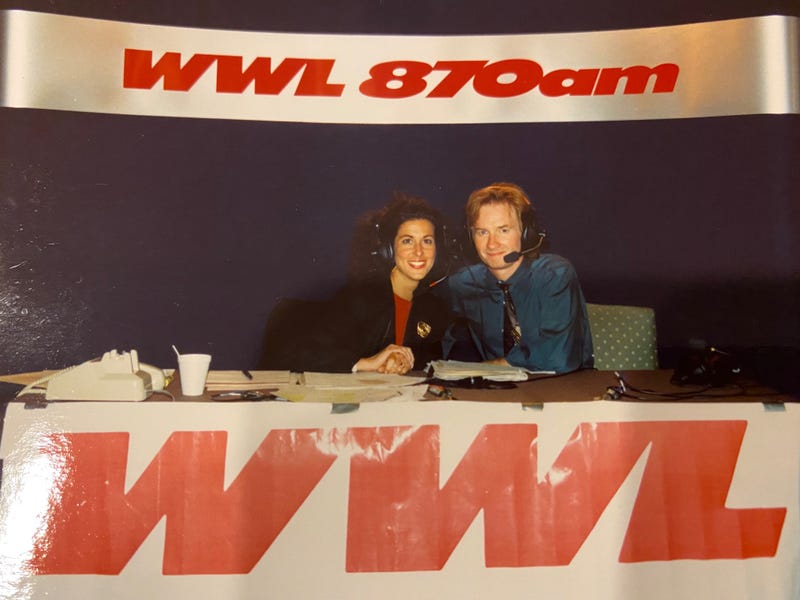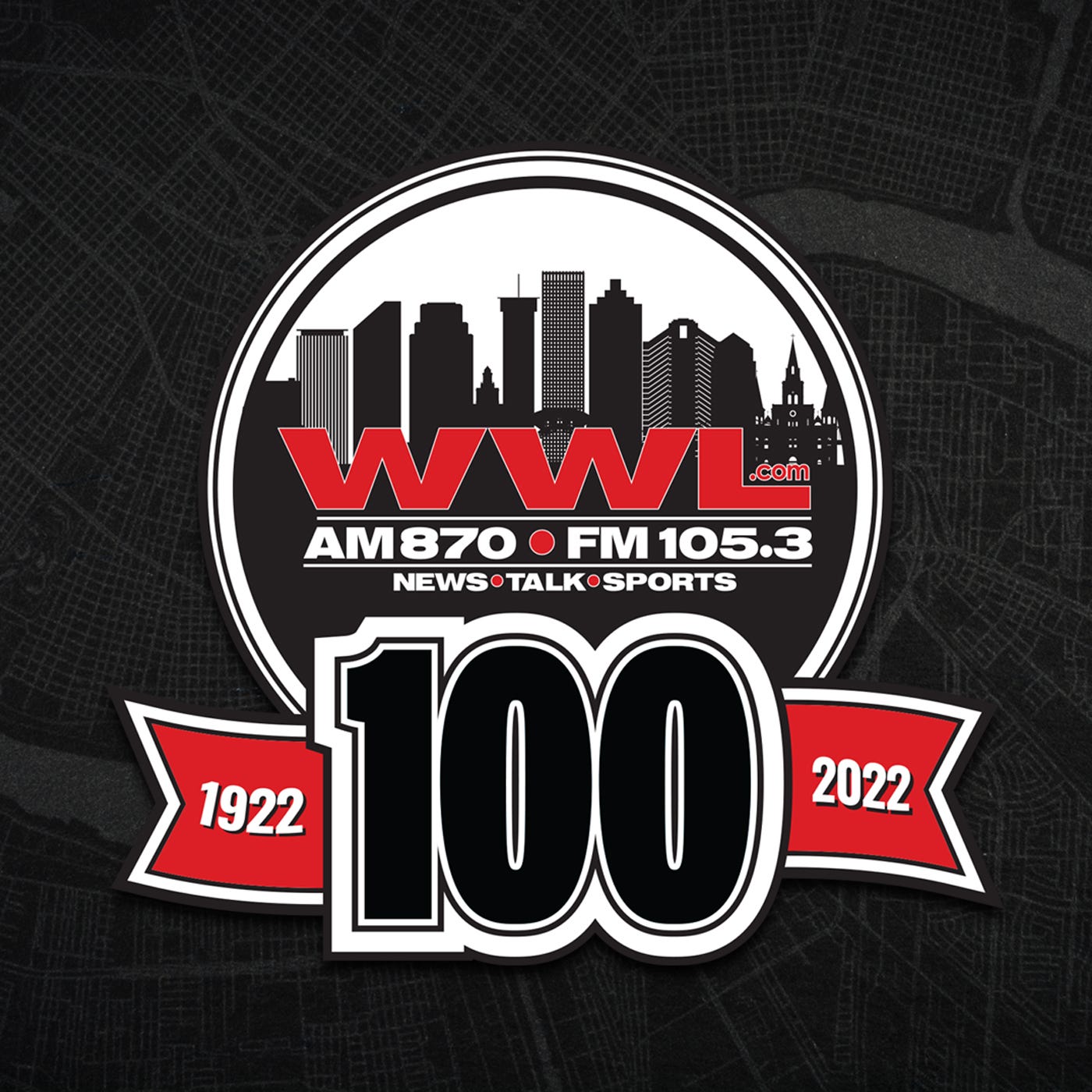
My first job in radio was with WWL. I was the producer for the diversely talented Bob Ruby, who ruled the morning show on WWL 870 AM from 1969 to 1977. Ruby had been an entertainer - singing and telling jokes in nightclubs and even making an appearance with his singing quartet on “The Tonight Show with Johnny Carson.” Ruby also dabbled in politics, working for a political candidate.
Bob Ruby came to WWL with very little experience in broadcasting. He was given the freedom to create a morning show dubbed, “Mornings are Ruby on WWL” and the success of that morning show defined a new era in the history of the station. Not on the air, but privately, Ruby made no secret of the fact that he used ideas from a big morning radio personality - Wally Phillips on WGN.
Ruby had a schtick - he was funny, sarcastic, and irreverent at times, but the big feature that he brought to radio was the art of using the telephone on the air. Ruby became famous for making long distance and overseas phone calls. This was a time when the FCC was not as strict about putting people on the air before they knew they were on the air. A radio host could call the White House, for example, without advanced permission. The switchboard operator would answer live on the air, “Good morning, this is the White House.” Coming up, I’ll explain how beneficial this was in doing a radio show.
Bob Ruby was spontaneous and I learned the importance of being live on the air without a script. One incident, in particular, stands out in my mind as the moment I realized the value of live radio.

One of my jobs was to go through the newspaper every morning and cut out interesting stories in the news. One morning, I gave Ruby a legitimate news story about a serial attacker who would terrorize young women on college campuses. Michael Kenyon earned the reputation of being the “Enema Bandit.”
I won’t go into detail about how this transpired on the air because taken out of context it is disgusting, violent, and appears insensitive. The way the police in Champaign-Urbana, Illinois described the arrest and the actions of the suspect led to uncontrollable laughter on the show - not that Ruby was making fun of what had happened - but the way the story was presented was written like a comedy script.
That was the moment very early in my career that I learned the art of spontaneous live radio.
Over the years, Bob Ruby became disenchanted with radio; and he had an opportunity to own and operate a new Ruth’s Chris Steak House in Hourston, TX. Houston was a hub for the oil industry and there was plenty of money there and a lot of people who wanted to eat steaks. Ruby made a killing with his Ruth’s Chris Steak House, but changes led to Ruby losing most of what he had gained.
WWL’s Big Programming Decision:
WWL was about to convert their “elevator music” station into a contemporary rock station. This was the idea of Sales Manager Ray Muro and Program Director John Pela. The name of the new FM station was to be “RAMPART-102.” Ray, who was the best man in my wedding, explained the name: the station was on Rampart Street and rampart meant the height of something.
RAMPART-102 hit the air with top 40 hits in 1973. I had been working as Bob Ruby’s producer, and I had elevated myself to working weekends on the air on WWL. In those days, the AM radio stations were still the primary stations for hearing the hits; and on those weekend shows I had a list of songs I had to play in a certain order. But I was on the air, so I found little ways to be creative about playing the music.
When RAMPART-102 went on the air, the audience for FM stations was low and very limited. FM radio was most popular at night and next during the late afternoons. To say that “no one” was listening to FM radio in the morning was not an exaggeration. No one was listening and the ratings reflected that. WWL’s goal was to move me to the new top 40 station, but since I was so inexperienced - and so bad on the air - management put me on in the morning. There were no known shows anywhere in the country where anyone was doing a personality-driven show in the morning on FM.
My thinking was that if people were listening to personality-driven shows in the morning on AM - why wouldn’t they listen to a personality-driven show on an FM station? People wouldn’t care if the band was AM or FM as long as the show was worth listening to.
Putting me on in the morning because the audience was non-existent proved to be the best thing WWL could have done - for me and for the radio station. I put my spin on some of the things I watched Bob Ruby do, and I started what may have been the first personality morning show on FM radio in the country.
I also had the advantage of receiving zero guidance, and I was allowed to just create a show that I thought would be entertaining with no regard for the status quo of radio. And much to the surprise of management - I started getting ratings.
The first celebrity type to call my show was a Playboy Playmate of the Month named Laura Misch. Laura was from New Orleans and married to an NOPD officer. She was listening one morning and called at the time when the issue of Playboy she was in was all over the news stands.
This might not seem significant, but in the context of those early years in radio a caller like Laura Misch was a huge attention-grabber and created instant word-of-mouth buzz about the show. She became a regular caller on the show and we never talked about anything graphically inappropriate - we just referenced that she was the Playmate of the Month.
On my new morning show on “RAMPART-102 WWL-FM” I started making phone calls, just like Ruby did. If it was the president’s birthday I called the White House live on the air. The operator would answer, “Good morning, the White House?” I would say, “I’m Scoot calling from WWL Radio in New Orleans and I wanted to call to wish the president Happy Birthday.” At that point the operator would say, “I’m sorry, sir, but the president is not able to come to the phone.” And then what I refer to as the “money line” - I said, “Would you please tell the president that Scoot called from WWL in New Orleans to wish him Happy Birthday!” What the listeners got from that was Scoot called the White House to wish the president Happy Birthday.
On the birthday of the Eiffel Tower, I placed an overseas call to Paris. I talked to the operator for a few minutes and then just left the message - just let everyone know that Scoot from WWL in New Orleans called to wish Happy Birthday to the Eiffel Tower.
One St. Patrick’s Day I called a pub in Dublin, Ireland live on the air and got a bunch of drunk Irishmen singing, “When Irish Eyes Are Smiling.” Making these overseas calls on the air was unheard of, and listeners started to buzz about how high my phone bill must have been. Comments included, “Did you hear who Scoot called this morning?”
After a few years of doing this, the FCC changed the rules; and the spontaneity was lost with the new rule that when calling someone live on the air the host would have to tell them they were on the air before they answered the phone. That simple change forever altered how the phone could be used in the course of doing a radio show. But I respected and followed the rules, and I made adjustments to keep the phones as an integral part of the show.
